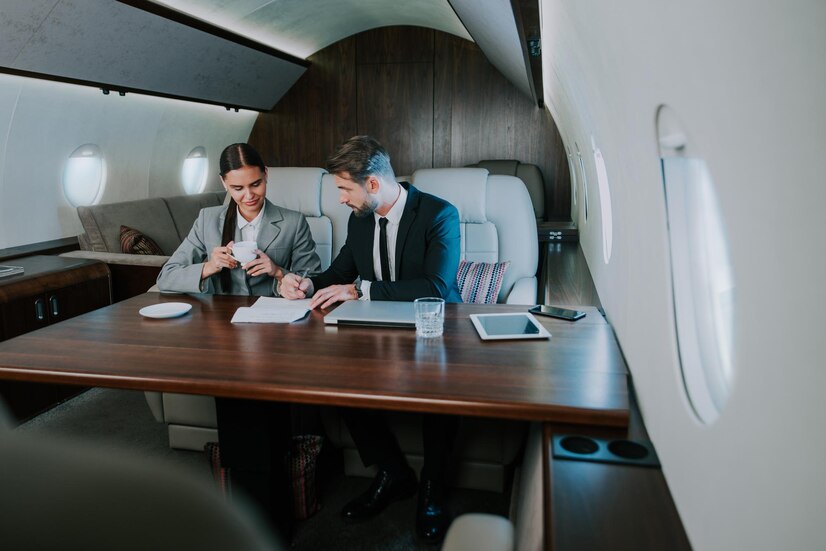Insurance
Aviation Insurance for Private Pilots: What You Need to Know

Taking to the skies as a private pilot is an exhilarating experience with unique responsibilities. Despite the indescribable excitement of taking flight, you must never forget the hazards you face and the measures you can take to safeguard your aircraft, passengers, and yourself. Have you ever wondered what would happen if something went wrong during a flight? What if your plane sustained damage on the ground? These are just a few scenarios that every private pilot should consider before taking off.
This is where aviation insurance comes into play. This specialized insurance protects pilots, aircraft owners, and operators financially from flying-related dangers. For private pilots, understanding the ins and outs of this essential protection can mean the difference between a minor setback and a major economic disaster.
Understanding Your Needs: Coverage Options
Airplane Insurance isn’t a one-size-fits-all solution. Different policies cater to specific needs, offering a range of coverage options. Let’s explore some key categories:
- Hull: This will cover the costs involved in an accident, stolen, or destroyed by weather; this will cover comprehensive coverage for your plane.
- Liability: Imagine accidentally causing damage to another aircraft or property on the ground. It protects you from the financial repercussions of such incidents.
- Medical Payments: Health insurance can assist in paying for medical bills incurred by passengers in the event of an accident.
Navigating Coverage Options
Pilots can opt for additional protections beyond standard liability and hull coverage to enhance their insurance portfolio. These may include non-owned aircraft (such as rentals), passengers, and personal belongings kept aboard the plane. Each additional option adds layers of protection, mitigating risks associated with different aspects of flying.
Additionally, coverage for personal belongings ensures that items such as avionics, navigation equipment, and personal effects are covered in case of loss or damage while on board. Each option enhances overall safety and peace of mind while in the air.
Factors to Consider: Tailoring Your Coverage
Several factors influence the cost and scope of your airplane insurance policy. Here’s what to consider:
- Pilot Experience: Pilots with more experience and flight hours typically qualify for lower premiums.
- Aircraft Type: Your aircraft’s type, value, and age significantly determine its insurance costs. High-performance planes often have higher premiums.
- Flight Frequency: The more you fly, the higher the risk of an incident. Frequent flyers might see slightly higher premiums than those who fly less often.
- Coverage Limits: This is the highest sum an insurance company will pay out in case of a covered loss. Choose coverage limits that adequately protect your assets.
Additional Coverage Options
While the core coverage options provide a solid foundation, consider exploring additional protections:
- Loss of Use: If your aircraft is grounded due to a covered incident, this coverage reimburses you for lost rental income or additional expenses associated with using a substitute aircraft.
- Airport Moveable Property: This covers damage to items like headsets or navigation equipment in your aircraft.
- Personal Accident Insurance: This provides financial protection for you and your passengers in case of injury or death from a covered aviation accident.
Understanding Legal and Regulatory Requirements
In addition to understanding coverage options and managing costs, private pilots must navigate insurance’s legal and regulatory requirements. These requirements may vary by jurisdiction and include mandatory minimum coverage limits, documentation requirements, and compliance with aviation regulations. Pilots must stay informed about these obligations to ensure compliance and avoid potential penalties or gaps in coverage.
Aviation insurance is a crucial investment for private pilots, offering financial protection and peace of mind during flights. Whether you’re a seasoned aviator or new to the skies, securing the right insurance policy ensures you’re prepared for any eventuality. Stay safe, fly responsibly, and enjoy the freedom of the skies with confidence in your insurance coverage.

-

 GENERAL1 year ago
GENERAL1 year agoDiscovering the Artistic Brilliance of Derpixon: A Deep Dive into their Animation and Illustration
-

 Posts1 year ago
Posts1 year agoSiegel, Cooper & Co.
-

 Lifestyle1 year ago
Lifestyle1 year agoPurenudism.com: Unveiling the Beauty of Naturist Lifestyle
-

 Lifestyle1 year ago
Lifestyle1 year agoBaddieHub: Unleashing Confidence and Style in the Ultimate Gathering Spot for the Baddie Lifestyle
-

 HEALTH1 year ago
HEALTH1 year agoTransformative Health Solutions: Unveiling the Breakthroughs of 10x Health
-

 Entertainment1 year ago
Entertainment1 year agoGeekzilla Podcast: Navigating the World of Pop Culture, Gaming, and Tech
-

 Entertainment1 year ago
Entertainment1 year agoKhatrimaza Unveiled: Exploring Cinematic Marvels and Entertainment Extravaganza
-

 BUSINESS1 year ago
BUSINESS1 year agoUnlocking the Secrets to Jacqueline Tortorice Remarkable Career and Accomplishments